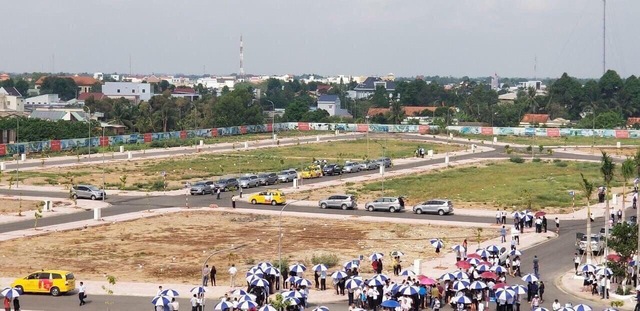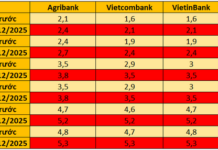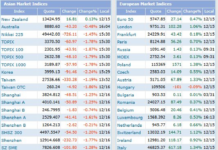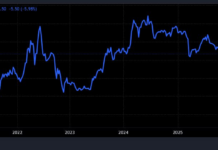The Land Law of 2024, Housing Law of 2023, and Real Estate Business Law of 2023 officially took effect simultaneously on August 1st with several new provisions. Notably, the Real Estate Business Law prohibits the transfer of land-use rights to individuals for self-construction of housing or for subdivision and sale of land plots in wards, districts, and cities of special, type I, II, and III municipalities. This restriction applies to cases where land-use rights are auctioned for investment in construction projects as stipulated by the Land Law.
In the remaining areas, the People’s Committees at the provincial level will determine, based on local conditions, the areas where project investors are permitted to transfer land-use rights with technical infrastructure to individuals for self-construction of housing.
Consequently, the new regulations will prohibit land subdivision and plot sales in a total of 105 cities and towns nationwide. Some argue that after August 1st, when the laws take effect, the restriction on land subdivision will result in a scarcity of land plots and subsequently lead to price increases.
Sharing his perspective on this matter, Mr. Tran Khanh Quang, CEO of Viet An Hoa Real Estate Investment Joint Stock Company, stated that limiting land subdivision in cities of the third type and above would create a scarcity of supply. While there is a definite shift towards stronger apartment demand, land plots still hold a significant proportion in the traditional investment mindset. Additionally, market-based land prices will significantly increase the cost of land-use fees. The existing project supply is also scarce and has already seen a 15-20% increase compared to the previous year, contributing to localized real estate price hikes.

Mr. Quang believes that these factors will lead to an increase in land prices in the near future. For the remaining months of 2024, land prices are expected to rise slightly, following the general market trend. However, by 2025, a significant increase of 15-20% is anticipated.
“For the Law to take practical effect, implementing decrees and circulars are necessary. Therefore, it will take at least 6-12 months for the land plot market to recover. From August 1st, 2024, to the end of the second quarter of 2025, the land plot market is not expected to witness significant fluctuations, with prices largely stagnant. A potential increase in land prices and improved liquidity in this segment may occur starting in the third quarter of 2025. However, the market will likely improve only in areas close to the centers of urban areas or in peri-urban areas. Land plots in remote locations will struggle to recover or create a feverish market as in previous years,” analyzed Mr. Quang.
Mr. Vo Hong Thang, Director of Consulting Services & Project Development at DKRA Group, offered his insights, stating that land plots with red books or those belonging to projects with complete legal procedures, well-developed transport infrastructure, and locations adjacent to residential areas, industrial parks, and convenient connections to city centers, have been attracting investors’ interest.
“In the long run, the appeal of land plots is unlikely to diminish. This segment has consistently attracted investors due to various factors, notably the traditional preference for houses attached to land, the need for safe asset accumulation, and the potential for high profits. Based on extended research on cycle repetition, the land fever may return in the 2025-2026 period. The current period up to the first half of 2024 can be considered the beginning of a recovery and growth cycle for the real estate market,” said Mr. Thang.









































